ARTICLE VIT.
THE SIN UNTO DEATH AND PRAYER.
BY C. E. W. DOBBS, D. D.
IN the first epistle of John (v, 16) we read: "If any man see his brother sin a sin which is not unto death, he shall ask, and he shall give him life for them that sin not unto death. There is a sin unto death: I do not say that he shall pray for it.,.' Assuming that the "sin unto death" is that sin against the Holy Spirit, concerning which the Lord uttered words so fearful (Matthew xii, 31, 32; Mark iii, 28-30), let us endeavor to understand the apostle's teaching as to the relation of that sin to the intercessory prayer of the Christian. Does this passage authorize him to pass judgment upon his sinning brother, and to "avoid prayer for him?"
Concerning the nature of the "sin unto death" a few sentences will suffice. Dogmatic utterance is ill suited to a theme so pregnant with fearful thought. The general opinion seems to be that this sin consists in "that persistent rejection of the Holy Spirit which, in the end, silences his striving voice and drives him from the door of the heart." This is the point everywhere urged by the noted evangelist Dr. A. B. Earlc, in his sermon on the "Unpardonable Sin." Probably the large majority of sermons on the subject run in this exegetical groove. But our Lord's language shows (so it appears to me) that that sin was a definite act of the mind and heart, whereas the current opinion regards it as a gradual development of depravity— as a series of sins.
The context of Matthew xii, 31, if carefully studied, will reveal a peculiar mental and moral state of the captious Pharisees environing Jesus, in the depths of which we are to look for those elements which constituted the "blasphemy against the Spirit." The warning words of the Lord are connected with, and are seen to grow out of, that context by the significant "therefore." What had those Pharisees done ? They had said : '' This fellow doth not cast out devils, but by Beelzebub, the prince of the devils." Against the verity of the miracles they utter no word. The overwhelming testimony to their reality had compelled their reluctant admission. They knew that "mighty works" were done by him ; yet they were resolved not to admit the claim of the Mighty Worker. They had prejudged the case. So inveterate were their malevolent feelings towards Jesus, that they derided the supposition of a divine presence and energy in the miracles. Instead of candidly saying, as did Nicodemus, "We know that thou art a teacher come from God; for no man can do these signs that thou doest except God be with him," they explained those signs by assuming demoniacal agency. "Therefore" Jesus charged upon them this awful sin of blasphemy against the Holy Spirit. Clearly this blasphemy was that perverse attributing to the power of Satan those unquestionable miracles which Jesus performed by the "finger of God" and the power of the Holy Spirit. This was done in the face of evidence which had undoubtedly convinced their minds. It was no sin of ignorance. It was the deliberate and malicious rejection of the known truth! Mark gives us the key to the mystery when he adds to his account of this interview, "Because they said, He hath an unclean spirit." (Mark iii, 30.)
In the beginning of this article it was assumed that the blasphemy against the Spirit and the sin unto death were identical. This position is not, indeed, admitted by all expositors, nor is it altogether free from difficulty; yet, upon the whole, it is most probably the correct view. Advancing, then, from the immediate circumstances calling forth
the words of our Lord, the question meets us, What were the circumstances which made this sin possible when John wrote? It may be answered: 1. That the same miracle- working power was with the apostles, ever evidencing the divine authority of their mission and teaching. 2. The same "evil heart of unbelief" led Jew and Gentile to "do despite to the Spirit." Many "antichrists" were with fiendish hate resisting the. unmistakable "witness that God had borne concerning his Son." Thus there was virtually the same combination of light in the head and malice in the heart, which led the Pharisees into the awful pit of hopeless condemnation. This state of mind and heart was indicative of a moral character in which the soul was wholly out of sympathy with good, and persistently intent only upon evil. To such a soul there was "no opening for repentance, and therefore none for forgiveness." The soul so lost to good was incapable of receiving those sweet impressions and melting influences which constrain to penitence. "Guilty of eternal sin," no note of warning could alarm, no message of grace could persuade. "The capacity for goodness in any form was destroyed by this kind of antagonism."*
From this view of the subject it will be reasonably concluded that the "sin unto death" is rarely committed at the present time; if indeed it was not, by its very nature, necessarily confined to the age of miracles, by which was divinely attested the verity of the Gospel. If this sin has passed the limits of that age, and does even now bring its irrevocable curse upon the soul of any sinner, we must look for it (in the language of the distinguished expositor last quoted) "in the ultimate stage of antagonism to God and to his truth, when the clearest proofs of divine power and goodness are (knowingly and maliciously) distorted into evidence that the power is evil. The human nature in that extremest debasement has identified itself with the devil nature, and must share its doom."
SOME INTERESTING FACTS
"In the Early History of Providence Baptist
Church Taken from the Records—Oldest
Church in the County.
"The early history of this church seems to be hid in the depths of antiquity. The first definite information we can gather from the records now in our possession goes back to December, 1780. At this early date we find a church composed of forty-five members, stopping for a while on Holston river, with Robert Elkin as pastor.
"Tradition tells us that Daniel Boone, on his second trip to Kentucky, was accompanied by Captain William Bush, of Orange county, Virginia. The said William Bush when on his return gave such glowing descriptions of the then wilds of Kentucky that a colony, composed mainly of Baptists, were induced to start for Boonesboro, near or on the Kentucky river. He went forward to locate lands while the colony was in preparation to start. The colony having made ready and started, proceeded as far as Holston, which is near the line between Kentucky and Virginia, arriving there in December, 1780. There they received intelligence from Captain William Bush, who was then in the fort, not to proceed any farther.
"The troubles with the Indians at that time rendered it impolitic and unwise to proceed farther. This body arrived at Holston, December, 1780, and having learned that they could not go any farther, held a church meeting for the purpose of exercising discipline the following January, 1781.
"They continued at Holston till September. 1783, with Robert Elkin as pastor, at which time they moved from Holston to Cragg's Station, south side of the Kentucky river, and carried the constitution of the church with them. And now, having arrived in Kentucky and settling on the south side of the river, near Cragg's Station, but through the badness of the weather nothing of importance was done till April 3, 1784.
"They remained at Cragg's Station till November I, 1785, at which time they moved to the north side of the Kentucky river. They appointed a church meeting at Brother William Bush's, November 27, 1785, at which time and place they elected a new clerk and transacted other business.
"The first house of worship built by the church was a log house erected in 1787 on the grounds now occupied by the old stone church, and in the year 1800 the stone church was built on its present site, on Howard's Lower Creek, near this place. The old stone church is still in a fair state of preservation, and is now occupied by the colored Baptists.
"Our present house of worship was built in the year 1873. Providence church has had thirty-two pastors.
"The first, Robert Elkin, began in 1780 and closed his labors in 1822, serving the church forty-two years.
"The next was Richard Morton. He was called in March, 1822, and closed his pastoral work in 1828.
"George C. Boone was called in March, 1828, and served the church five years. Robert Elrod was called in 1833 and continued till 1834, at which time Abner D. Landrum was called and served the church four years: at the close of which time, February 17, 1838, Thomas German was called and served the church till 1842. B. E. Allen was next called and served as pastor till September, 1847, tnen Edward Darnby was called and continued till October 4, 1848.
"At this point several ministers were called but declined to accept and the church had no regular preaching till September 1849, when B. E. Allen was again called and accepted, but resigned in October, 1850, and the church was without a pastor for one .year.
"B. E. Allen was again called in 1851, accepted and preached one year. In January, 1852, P. T. Gentry was called and served the church till September, 1855. Then B. E. Allen was again called and continued with the church until his death, in 1861.
"The church next called R. T. Dillard, and he began his labors January, 1862, and continued till February, 1865. H. McDonald entered the pastorate in May, 1865, and left the church the following November. R. T. Dillard was again called, and preached for them one month, but then declined the call. In June, 1866, C. E. W. Dobbs entered the pastoral care and continued till October, 1867. W. B. Ar- vin accepted a call in 1868 and labored till 1874. In April, 1874, G. T. Stansbury accepted a call and preached six months. George Yeizer supplied the church till March. 1875. In June, 1875, A. F. Baker accepted a call to the pastorate and served the church till May, 1880. In June, 1880, J. Pike Powers accepted a call and preached for one year. In June, 1881, J. Dallas Simmons entered the pastorate care and continued till December, 1887. In January, 1888, J. Pike Powers was again called and served as pastor of the church till December, 1889.
"In April, 1890, A. H. Anthony was called and continued till July, 1891. In November, 1891, A. H. Hunt was called and continued with the church till July, 1894. when I. T, Creek was called and served as pastor two years. In January* 1897, H. F. Searcy entered the pastorate and continued till May, 1898. I. N. Yohannon supplied as pastor from June, 1898, till the following October. In November, 1898, J. S. Wilson accepted a call and labored with the church till January, 1903. E. F. Music supplied the church till December, 1903. T. C. Ecton was called and entered the pastoral care in January, 1904, and continued with the church two years. In January, 1906, A. R. Willett was called and served as pastor till December, 1907. In January, 1908, B. J. Davis accepted a call to the pastorate and is serving us at this time. We hope to keep him with us for a long time to come.
"Up to this time one thousand, two hundred and eighty members have been received by experience and baptism, and three hundred and seven by letter, making the total number received one thousand, five hundred and eighty- seven. Three churches have been constituted out of this church. On August 5, 1790, the church was the subject of a serious difficulty, growing out of a misunderstanding between Robert Elkin and Andrew Tribble. The membership being pretty nearly equally divided, the matter was finally settled by allowing Tribble and his brethren to take letters and constitute a new church, which was called Unity. This church (Unity) was afterwards divided, and a part constituted Indian Creek- church, and in the course of time Unity and Indian Creek united and formed what is now called Mt. Olive church.
"In April, 1812, the church called Bogg'.s Fork was constituted out of this church. This church (Bogg's Fork), was located near Athens, in Fayette county, and afterward was merged in Boone's Creek church at Athens. In 1859 the church at Winchester was constituted mainly out of members of this church. August n, 1830, many members having become displeased with the rules and regulations of this church, withdrew themselves and are no more of this body. Fifty-four was the number that withdrew. They built them a house of worship now known as Forest Grove.
"In reading over the old records I find many interesting instances. The church had its seasons of refreshing and its troubles then as we do now. March 12, 1796, Robert Grimes was excluded 'for singing vain and worldly songs.' August 13, 1796. John Lile was excluded for 'unhappily drinking too much licker.' July 9, 1803, Mrs. Mary George was excluded for 'scolding her husband.' August 12, 1809. Robert Elkin, Thomas Berry and Robert Didlake were appointed 'Messingers to the Association and authorized to draw from the church fund Six Shillings to assist defraying the expenses of the Association.' July 31,
1842, a protracted meeting was begun and lasted till September 3rd. They had seventy- eight conversions. Brother E. J. M. Elkin was one of them, and is the only one that is now living.
"The above is a synopsis of the history of Providence Baptist church taken from the records.
"W. P. Hieatt,
"Clerk of Providence Church."
Subscribe to:
Post Comments (Atom)






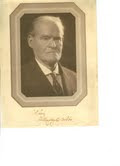


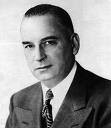



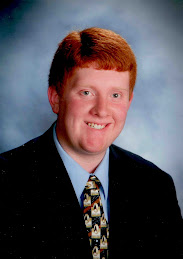
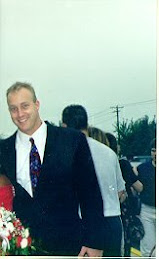
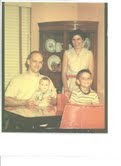
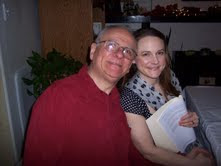
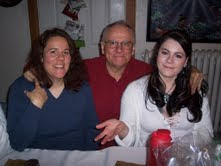

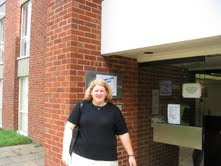
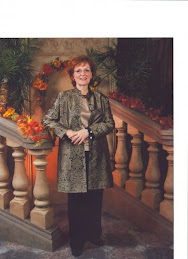


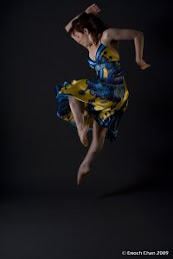

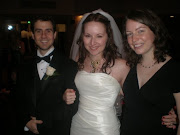

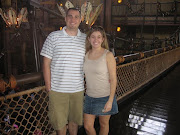
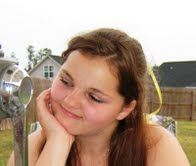
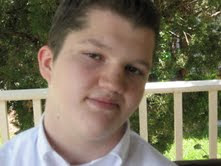
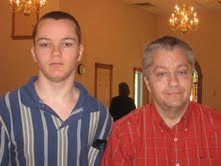
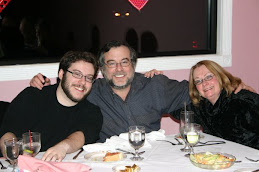



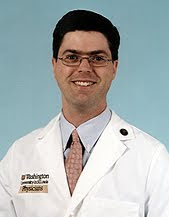
No comments:
Post a Comment